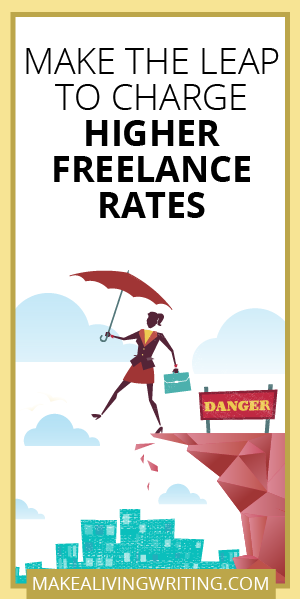 Terrified of charging higher freelance rates, even though you know you’re worth it?
Terrified of charging higher freelance rates, even though you know you’re worth it?
If quoting big is outside your comfort zone, I get it. It seems too risky.
What if you lose the gig?
In my family, income from my freelancing is pretty important. We depend on it being there every month, so I’m not in a position to take huge unnecessary risks. A lost gig equals lost income (and lost income doesn’t pay the mortgage).
But at some point, you’re bound to reach a tipping point. You might be terrified of the outcome, but you’re finally willing to take the risk to find out if you can command higher freelance rates.
I reached a tipping point like that earlier this year, and something pretty crazy happened.
Want to learn how to punch fear in the face, and take the leap to raise your freelance rates? Here’s how it’s done:
Try the ‘raise your freelance rates’ experiment
Not long ago, I had an interested prospect I was negotiating with to work out the details of a project. And I decided to try a little experiment. When it was time to bid on the gig, instead of quoting my usual $100 per post (like I did for at least a year), I tripled my usual rate and quoted $300 per blog post.
Before this, asking for $100 seemed comfortable. $200 was edgy. This was a cavernous leap. Imagine my surprise when the first client said: “Yes!”
Make a mindset shift
If you want to get out of the rat-race of working for lower freelance rates and bidding low so you don’t lose a gig, you have to make a mindset shift.
Do you want to be a pro freelance writer? The kind of in-demand writer clients are willing to pay top dollar for? I had to make a mindset shift to start thinking like this.
Your writing skills can help a client:
- Connect with readers
- Generate leads
- Sell widgets
- Build brand awareness
- And so much more
And you should be compensated accordingly. That can be hard to believe, if you’re used to working for low-paying clients. But it doesn’t have to stay that way.
My mindset shift came about by spending more time around high-earning writers in the Freelance Writers’ Den and in Den 2X—where charging $300 for a blog post (and often even more than that) is actually common.
So how do you get from where you are to where you want to be?
Steps to raising your freelance rates
These tips are all great for jumping-in and raising your freelancing rates. Don’t be afraid to implement them as a process or just take one or two and apply it to your own business. Take the leap to raise your freelance rates. It might be a little scary, but it’s worth it.
1. Get in touch with your new mindset
If you don’t really believe you deserve to earn more, then you probably aren’t ready to make a convincing case to your clients. This is why your “mindset reset” is so important. Pay attention to your self-talk and beliefs about freelance rates.
Need to make a mindset shift? Here are some strategies to help you:
- Hang out with like-minded freelancers. Whether that’s in a writer’s group meeting at your local library or online in a writing forum like the Freelance Writers Den. Surround yourself with other people who can help motivate and encourage you to grow your rates. Other writers can also help you decide if a possible gig is worth it or not.
- Promote positivity in your life and work. You are what you eat. Think positive and spend time doing positive activities, hanging out with positive people, etc.
- Challenge yourself. Raising your freelance rates isn’t a one-time activity. Plan to revisit your rates regularly. Try asking for just 20 percent more and see what happens.
2. Decide how you’ll raise your rates
Maybe you’ll raise your rates on every client at once, but it may be better for you to ask for higher rates from new clients and gradually drop your lowest payers. Quitting cheap work all-at-once isn’t absolutely required.
Personally, I’m gradually cutting out low-payers as I go, replacing them with higher-priced gigs.
3. Commit
It’s tough sometimes, but you’ll need to hold tight to your new rates. Quote these higher numbers and be willing to walk away from the gig if the client balks. I’ve had a few that did gripe about a high quote before, only to return a couple weeks later when a cheaper writer didn’t work out.
To make this work, consider:
- Communicating confidence with your quotes. I’ve waited uncomfortably long before getting a “yes”—let the prospect blink. Emailing or calling your prospect frequently after sending a quote looks desperate. Don’t do anything desperate.
- Building flexibility in your finances. If necessary, cut expenses temporarily so you can afford to give up a bad gig or avoid bidding cheaply. Then push for better work.
- Track your income. The act of making a simple spreadsheet and tracking your wins can be motivating enough to encourage even more high quotes in the future. Once you see the numbers, you’ll love your progress and keep yourself accountable.
4. Change your prospecting habits
You may need to take a long, hard look at your marketing habits and say goodbye to the strategies that aren’t working out. Or, you may need to try pitching a different industry/niche, learn a new writing skill, or look for clients somewhere else, where the high-payers hang out.
Change something about your marketing and be willing to experiment so you can keep charging more.
Take the leap to raise your freelance rates
If you’re willing to make changes, take a little risk, and keep learning, you can charge higher rates and earn more. Don’t let fear keep you from making a living as a freelancer. Take the leap.
What strategies have you used to raise your rates? Let’s discuss on Facebook and LinkedIn.
Kaitlin Morrison is a freelance healthcare and finance writer in Moses Lake, Wash. You can find her online at www.kaitlinmorrison.com.
The post How to Make the Terrifying Leap to Charge Higher Freelance Rates appeared first on Make A Living Writing.
from Make A Living Writing https://ift.tt/2sbvVCA

 Photo by
Photo by 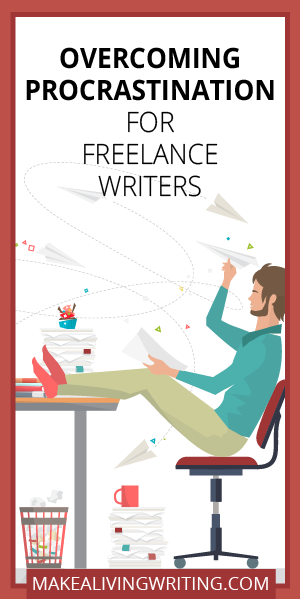 Want to know the solution to overcoming procrastination?
Want to know the solution to overcoming procrastination?
 You want to get more leads to grow your freelance writing business.
You want to get more leads to grow your freelance writing business.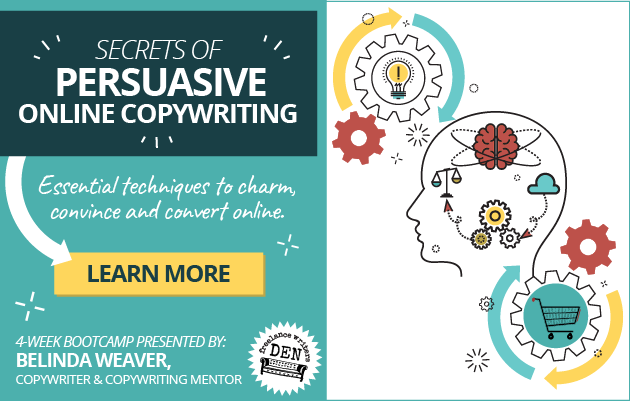
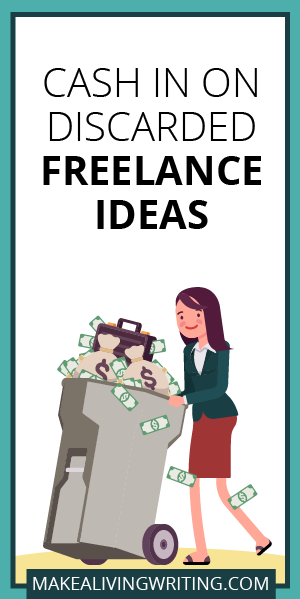 Have you ever come up with a bunch of good freelance ideas and then tossed them in the virtual trash?
Have you ever come up with a bunch of good freelance ideas and then tossed them in the virtual trash? Are you nervous that the
Are you nervous that the  Photo by
Photo by  Ever wonder what the formula is for earning higher freelance writing rates?
Ever wonder what the formula is for earning higher freelance writing rates?
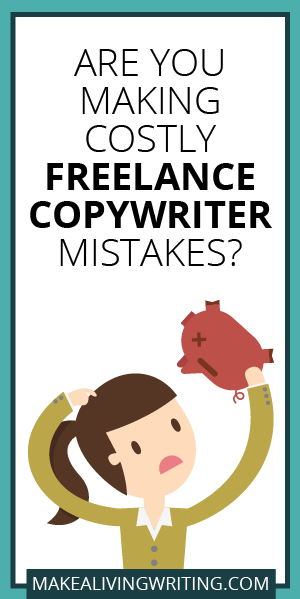 If you’re a new freelance copywriter, sending a quote can be fraught with anxiety:
If you’re a new freelance copywriter, sending a quote can be fraught with anxiety: